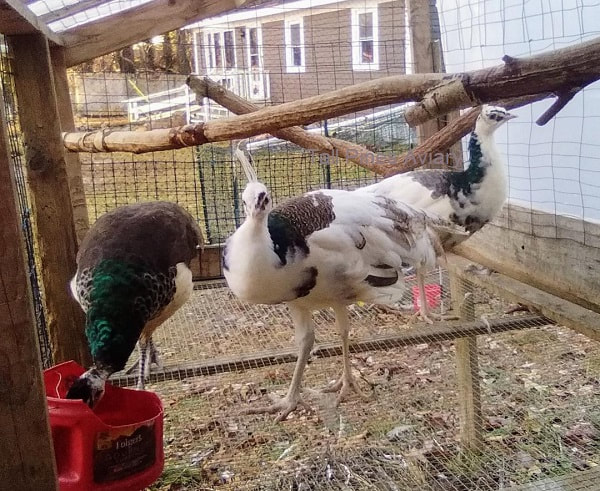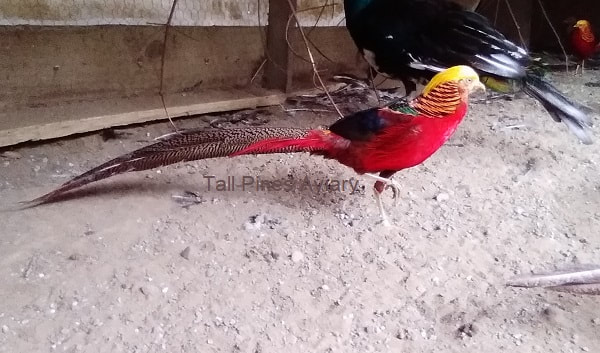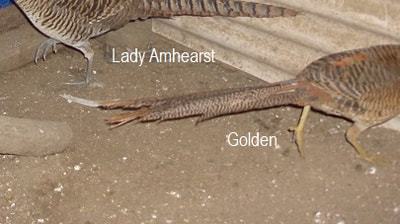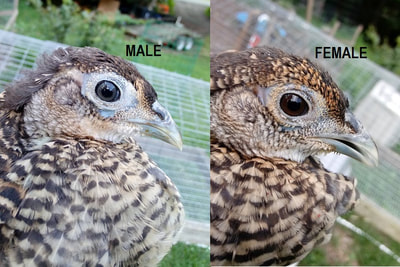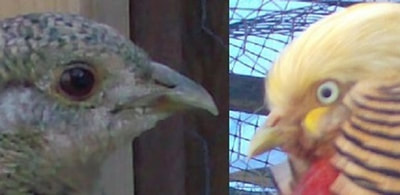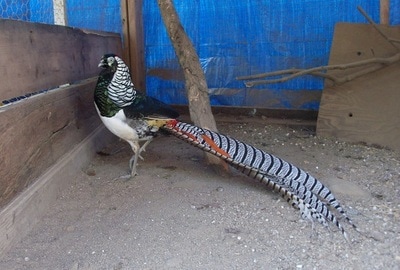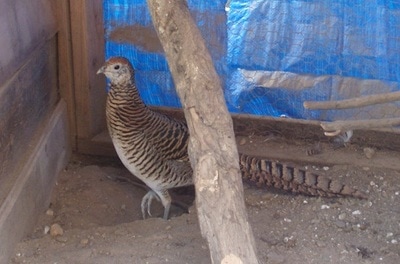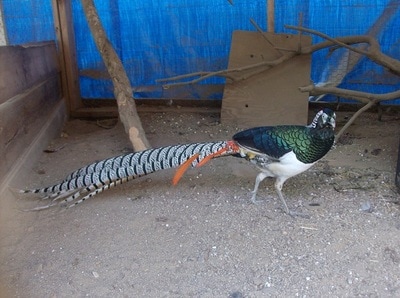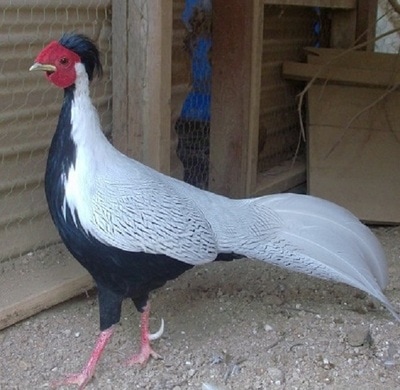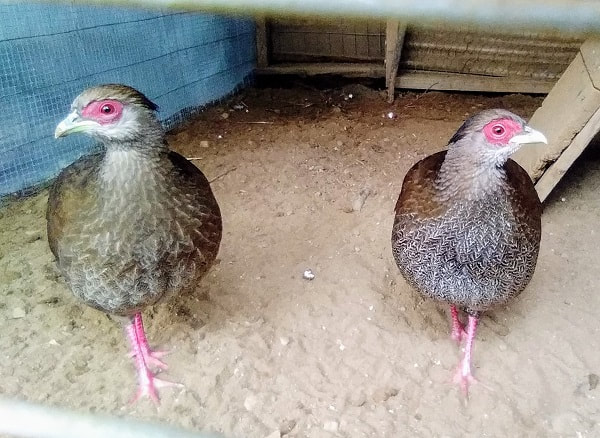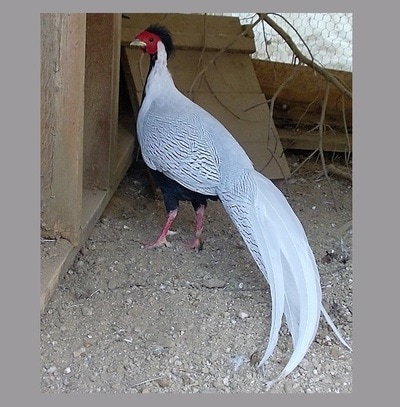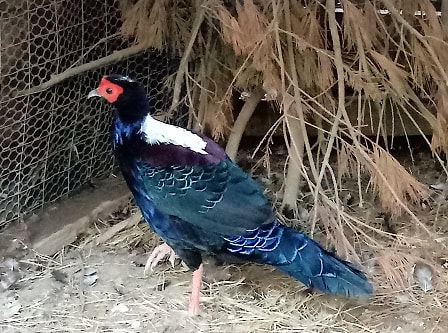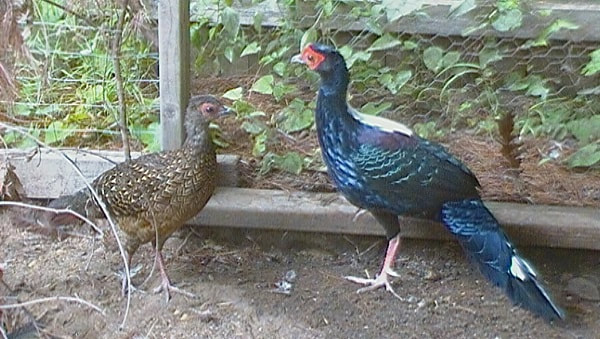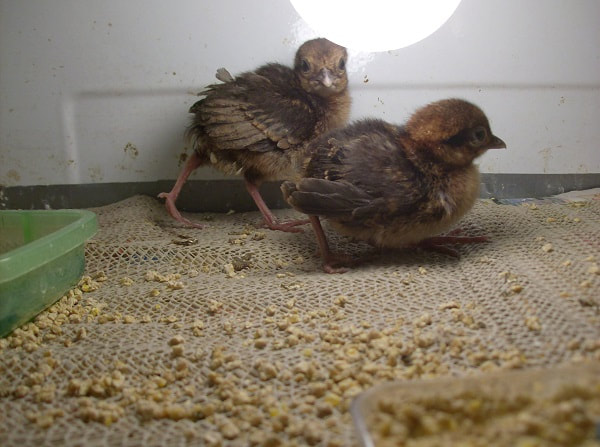Peafowl
Pheasants
|
With regards to the Golden pheasant and Lady Amhearst pheasant, to identify the chicks is easy by the color of the legs. The Golden has yellow legs and the Amhearst has dark grey. Sexing can also be done as early as 8-9 weeks old.
The eyes of a male are something like blueish-grey and the female's eyes are dark brown. |
|
Lady Amhearst
Found in Asia and closely related to the Red Golden pheasant. These two breeds should not be interbred due to loss of pure bloodlines. Hardy and easy for beginners. One of the most colorful pheasants. Possible to breed in first year but best to wait until two years. Breeding starts in April/May. Males fan out 'cape' like the Golden. |
|
Swinhoe
Discovered by Robert Swinhoe, in 1862, this pheasant is endemic to Taiwan (meaning found wild only in Taiwan). They are forest dwelling birds living in the mountains at higher altitudes. Males are dark glossy blue/black with highlights of metallic blue, green and maroon/purple and white on back and tail. Females are brown/grey with triangular yellow/buff markings. |
